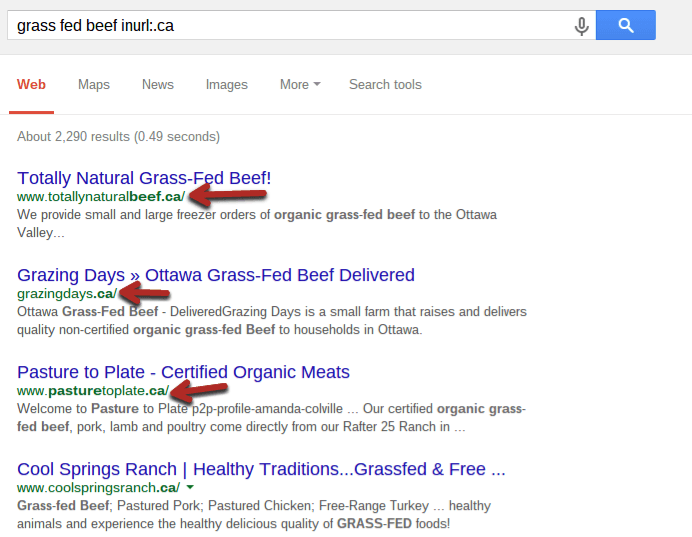Track down link building footprints – “inurl:”
Footprints are common words or phrases that appear on pages.
For example, footprints for sites that accept guest posts would be:
- “Guest post by”
- “Submit guest post”
- “Apply for guest post”
- “Guest post written by”
- and so on…
While many of these footprints involve phrases in the content itself, some of the best ones are contained in the URL of posts.
For example, if a post URL contains the words “guest” and “post” in it, there’s a good chance that it will be from a site that accepts guest posts (or is writing about how to write guest posts).
We’d be looking for something like this:
www.domain.com/apply-guest-post
With the “inurl:” search operator, you can actually look for pages like this. This search term operator will tell Google to only return results where the words to the right of the colon are contained in the URL.
To continue with our example, you could type into the search engines:
inurl:”submit guest post”
to find places to guest post:

There are a few things to note here. The first is that since the whole phrase “submit guest post” is in quotation marks, only pages with a URL with those words in that exact order will show up.
This is a bad thing, because when you scroll through the title tags you will see it excludes search term results that you want.
To fix that, you can do the same thing we did with the title operator and search query for:
inurl:submit inurl:guest inurl:post

Now you’ll get results from the search engines where the footprint words are in a different order or there are words between them.
If you were just going to go through hundreds of pages like this, you’d be wasting your time. After all, you’re only interested in sites generally related to yours.
So, you can do the same search query, but apply a keyword to it at the end.
With a search like:
inurl:submit inurl:guest inurl:post marketing
You’ll only get results for potential guest post opportunities on sites that are related to marketing, checking the anchor texts and title tags should prove that.

Alternatively, you could include multiple keywords (e.g. marketing, SEO, inbound), if you write about multiple topics.
Consider that you could get hundreds of potential leads with this single footprint. If you find a few other good ones, you’ll be set for a while.
Find content in a specific country: Personalization in search terms are only going to get more popular over time. Google loves to deliver results that are tailored for individual search engine users.
One of the most common ways to personalize content is to divide it by location.
Pretend that Mike was researching a post for the nutrition case study site that was all about grass beef options for Canadians.
To find sites and farms that sell it, he could use the “inurl:” operator to target only domains that end in “.ca”, the Canadian extension.
So he could search query:
grass fed beef inurl:.ca

and get a bunch of results that would help him put together the post.
You could use this search operator to search for domains with any tld.
